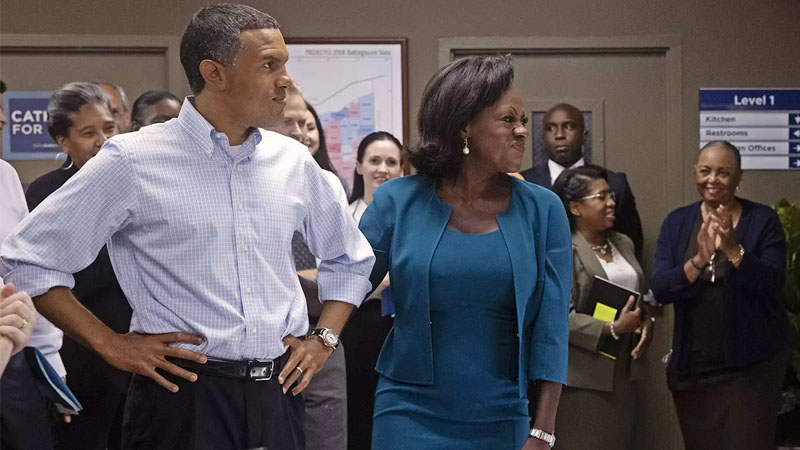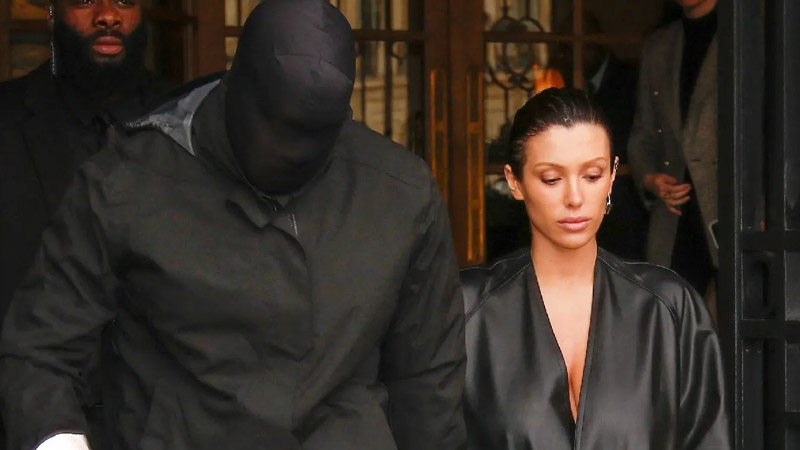The First Lady review: A complete waste of three excellent actresses, “Now I get to make a difference!”

(Photo by YouTube Screenshot)
Viola Davis, Michelle Pfeiffer, and Gillian Anderson can’t save Showtime’s ponderous political anthology.
“First Ladies and their teams are often the vanguards of social progress in this country, despite no budget and no pay,” writes Betty Ford (Michelle Pfeiffer) to Michelle Obama (Viola Davis) in the tenth and final episode of Showtime’s The First Lady. The sentiment serves as the thesis for Aaron Cooley and Susanne Bier’s anthology series, a very well but the ponderous effort that wastes a trio of exceptional actresses with its bland and short storyline, according to Entertainment.
Despite its simple title, each hour-long episode of The First Lady crams three presidential spouses — Mrs. Obama, Mrs. Ford, and Mrs. Eleanor Roosevelt (Gillian Anderson) — and many administrations into it. The series introduces them at pivotal moments in their husbands’ political careers: FDR (Kiefer Sutherland) contracting polio and launching his New York gubernatorial campaign in the 1920s; Gerald Ford (Aaron Eckhart) being nominated to succeed Spiro Agnew as Vice President in 1973; and Barack Obama (O-T Fagbenle) arriving at the White House with his wife and young daughters in 2008.
From there, the stories jump back and forth — three timelines, each with its own flashbacks — touching on courtships and childhood, family difficulties, and political victories. First Lady (premiering April 17) explores how these wives contributed to their husbands’ success in a number of ways: Enthused crowds meet Michelle on the campaign trail in 2008 after Barack’s team claims he has a “relatability issue”; Eleanor provides a list of potential female cabinet candidates to FDR, who ultimately names a woman to the post of Secretary of Labor.
Eleanor, Betty, and Michelle are all advised to take a step back and smile as the guys reach the Oval Office. “Oh, I see,” Eleanor sniffs at FDR’s top advisor, Louis Howe, in her arrogant mid-Atlantic drawl (Jackie Earle Haley). “I’m good enough to get him here but not good enough to keep going.” This injustice is the entire reason for The First Lady’s existence — but for some reason, the project’s producers decided that none of these interesting First Ladies could carry their own show.
Betty Ford’s life alone might be the foundation for a variety of limited series: Former Martha Graham dance student, an outspoken supporter of abortion rights and the Equal Rights Amendment, and recovered addict who built a world-famous rehab center in the desert. The same might be said of Eleanor Roosevelt or Michelle Obama, but their stories are stitched together and in greatest-hits sections, and the show simply feels like a prestige (and repetitive) reenactment of each First Lady’s Wikipedia page.
Anderson recreates several of Eleanor Roosevelt’s famous radio addresses (“A woman is like a tea bag — you never know how strong it is until it’s in hot water”). Multiple scenes depict a young Michelle Obama (Jayme Lawson) watching her sick father (Michael Potts) navigate a health care system that caters to wealthier patients with better insurance. There are clumsy moments of epiphany: “I am a Roosevelt. I should use it to further the causes that I believe in,” muses Eleanor. “Now I get to make a difference!” announces Michelle to her Senator husband after landing a job at the University of Chicago Hospitals. Then they both dance to Mary J. Blige.
It’s a pity because the cast is fantastic. Pfeiffer gives an exquisitely controlled performance as Betty Ford, embodying the fun-loving First Lady’s poise and witty charm as well as the emptiness those qualities masked. Lorena Hickok, the pioneering lesbian journalist who built a strong (and possibly romantic) bond with Eleanor Roosevelt and frequently stayed in a bedroom adjoining the First Lady’s in the White House, is brought back by Lily Rabe. (How is this not a stand-alone show?) Despite the required hairpieces and prosthetics that come with this current wave of true-life TV, the actors behind the Presidents are equally charismatic.
“You knew what you were getting into,” notes Gerald Ford, informing Betty that she’s about to become First Lady in the wake of Nixon’s resignation. It’s a common theme in these women’s lives: You married a politician, what did you expect? I suppose as viewers we could say the same thing to ourselves: A-list stars playing Important People, an Emmy-hungry network, a TV industry that seems to value “true” more than “story” — we knew what we were getting into. But that doesn’t mean we have to like it.
The First Lady premieres on April 17 on Showtime.


